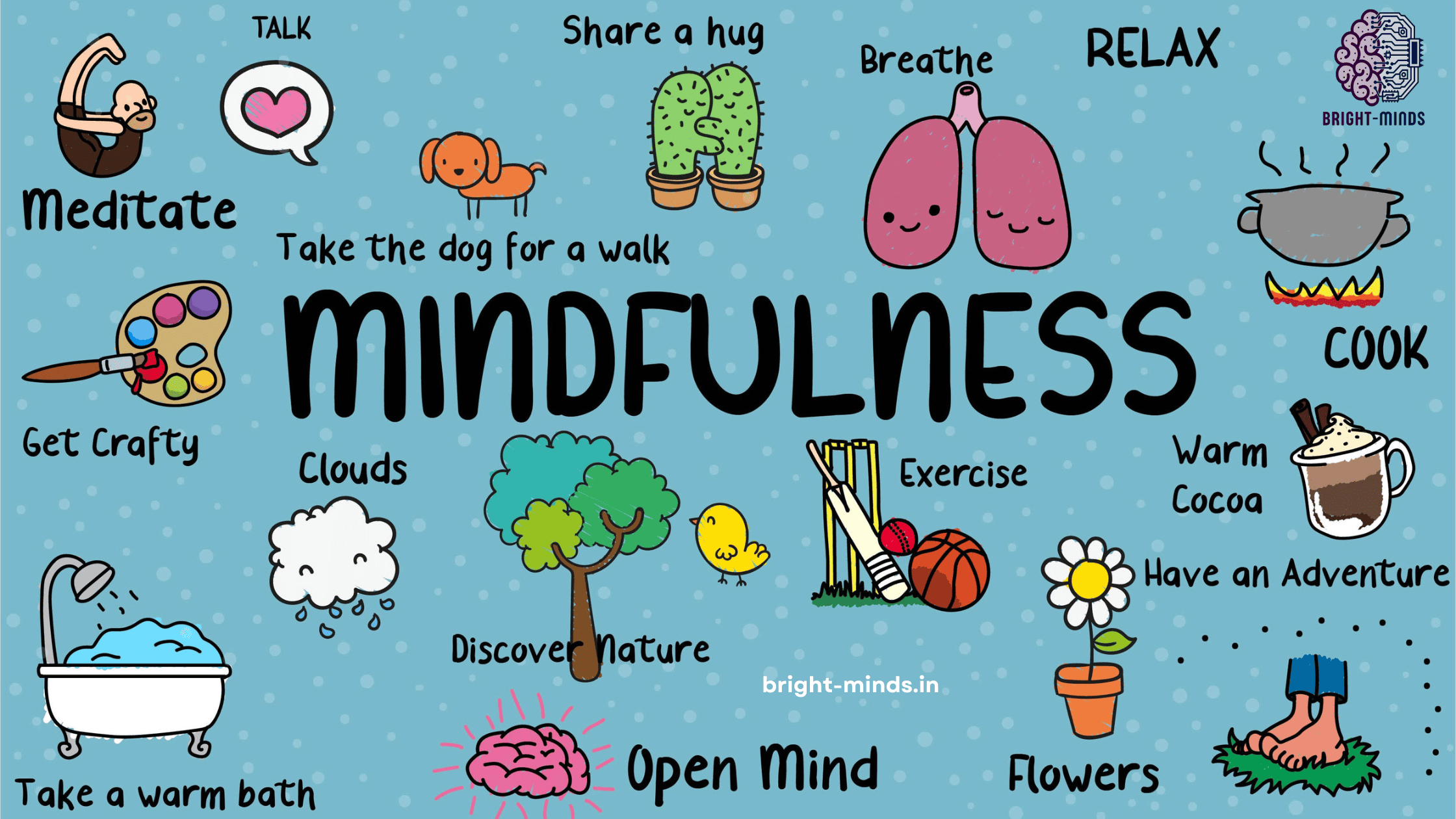Even youngsters encounter stress, distractions, and emotional ups and downs in the fast-paced world of today. Children can benefit from the straightforward but effective practice of mindfulness by becoming more conscious of their thoughts, feelings, and environment. It promotes emotional fortitude, concentration, and serenity.
Let’s look at some simple mindfulness exercises that you may do with your kids at home or in school.
1. Deep Breathing with a Counting Trick
Teach children to take deep breaths while counting slowly. Ask them to breathe in for 4 counts, hold for 4 counts, and exhale for 4 counts. This calms the nervous system and increases focus.
Tip: You can call it “box breathing” and visualize drawing a square in the air with each breath.
2. The Five Senses Game
Ask your child to pause and observe:
- 5 things they can see
- 4 things they can feel
- 3 things they can hear
- 2 things they can smell
- 1 thing they can taste
This game quickly brings attention to the present moment and helps reduce anxiety.
3. Mindful Coloring
Give children a mandala design or a blank coloring page. Urge them to concentrate just on coloring while observing the emotions evoked by each hue. This exercise enhances creativity and focus.
4. Nature Walk with Purpose
Go for a short walk outdoors and ask your child to notice small things like the sound of leaves, the feel of the wind, or the color of the sky. This boosts awareness and appreciation of nature.
5. Gratitude Practice
Before bedtime or at the end of the school day, ask your child to name three things they’re grateful for. This simple routine builds a positive mindset and helps kids focus on the good.
6. Mindful Eating
Let your child eat one raisin, a piece of chocolate, or a fruit slowly. Ask them to notice the texture, smell, and taste of the food. This helps improve attention and reduces mindless eating.
7. Body Scan
As you help your child lie down, gradually point out every part of their body, from the toes to the head. Request that they observe the sensations in each place. This is a good way to unwind and get some rest.
8. Listening to Calm Sounds
Play soft music or nature sounds and ask your child to simply listen. After a minute, ask them to describe what they heard. This trains their listening skills and encourages calmness.
Why Mindfulness Matters for Kids
Practicing mindfulness:
- Improves focus and memory
- Reduces stress and anxiety
- Boosts emotional awareness
- Encourages better sleep
- Promotes self-regulation and discipline
Final Thoughts
Being mindful doesn’t have to be difficult. Your child’s attention span and mental well-being can be significantly improved by a few minutes each day. Your youngster will become more calm, present, and upbeat if you incorporate these activities into your daily schedule.
Do you want a diary or activity sheet that can be downloaded to go with this blog? I can also assist you in making one.
You may be like this:-
Express Yourself: Fun Games to Boost Kids’ Social Skills
How Art and Craft Activities Help Preschoolers Develop Skills

